My name is Evelyn Mancillas and I'm excited to start the semester with you all! This is my senior year at Cal State Fullerton and I am very excited about graduating soon! I'm majoring in Women's Gender Studies with a minor in Queer Studies. I recently moved out to my own studio so I am now living alone with my dog, Nala. Nala is a german shepherd Pitbull mix. This is my first time taking an online class so I am nervous and concerned, but I am hoping I am able to pull through.
Don't wanna be here? Send us removal request.
Text
Short Answer Quiz #3 11/20/20
1. Determine what kind of social media site you are creating. Then answer the following questions, explaining your decisions. (Remember the key here is to create an ethical algorithm model).
The social media site I would be creating will be similar to Vine and TikTok. It will be called PodVideo, I got the name from watching so many podcasts. When you watch Vine videos or even Tiktok videos, you have a time limit, however PodVideo won’t. People will have the freedom to post long videos and show the world the content they desire. You will still be able to like and save videos from other creators and even tag artists that inspired the video or even just tag friends.
2. What will you measure? (ex: likes, hashtags, how long someone stays on a page, etc) Be sure to explain all your decisions.
I will measure the view counts, likes, how long someone stays on your page, shares, saved items, and tag/hashtag on every video someone posts. The view counts will help algorithms put the low viewed videos into people’s first page just like instagram. One of the changes I noticed on instagram is how they make the more recent videos pop up on your timeline first. With PodVideo, the low count view videos will be displayed first so everyone is able to get recognition. The likes and how long someone stays on your page will help algorithms note down whose PodVideos are popular and trending. The shared and saved items will help algorithms track down what type of videos people are enjoying and come back to and rewatch. Whenever you tag someone or use a certain hashtag, you do it with the intention that some of your friends can relate too or find it funny so Podvideo algorithms will be able to note down what type of videos people are relating to.
3. How will you weight these factors? (rank factors from most important to least important)
Based on my PodVideo measures, we will highly focus on view counts. The view counts will help us determine what videos are most being watched and trending. The main purpose of my app will be for creators to get the recognition they deserve. When using any social media app, you notice that those with higher view counts in photos and videos tend to be shared most and become popular. After the view counts, we will focus on the likes of the video as well saved items. Typically if you like something, you tend to save it after so you can rewatch it at a later time. The last thing we will focus on will be the shares and tags/hashtags. Usually for shares and hashtags you are able to easily search up what you are looking for and find it right away. This wouldn’t be something I would need to monitor as much as the other factors.
4. What factors will not be measured? (what will not be measured in your algorithm and why)
I will not be monitoring the demographic of peoples Podvideos or how many videos they will be posting. I wouldn’t measure the demographic sense I would want my PodVideo app to be meant for everyone. If we were to measure the demographic it would seem like we are trying to aim for a specific group. I wouldn’t measure how often creators post due to the fact that others may not have enough time to post as often as others. If we were to move past these measurements, it will give everyone the opportunity to create videos at their own pace and allow everyone of every single demographic to be interested in this app.
5. How will the model learn or adapt to new information? (this can include changes in language, etc)
The PodVideo model will be able to adapt to new information by having a third party do background scanning on accounts to prevent discrimination, racism, sexism or any sort of harassment towards other creators. If an accounts becomes suspended or flagged, it will be notified that their videos or account itself is interacting with discrimination, racism, or harassment. The purpose behind this app not focusing on demographic is to eliminate any discrimination or racism so this will also help my model to adapt to new information. Overall, all content that is posted will be analyzed before posting and after posting.
6. What biases will be built into the model? How will this change the algorithm’s outcome?
Some biases that will be built into my model would be to allow similar content videos to be displayed to you. My model won’t allow you to follow or add friends, so allowing for recommended videos from other creators that are in different cities or states to be displayed to you would be beneficial to the users. It would also help creators to become close and meet others creators. The outcome of this algorithm is to unite different creators from around the world and share each other's content. The algorithm that displays recommended videos based on what they have previously watched would help people realize that they share the same interest with those in different cities/states.
7. How will the model live out the (un)ethical practices we have discussed?
This model would live out the (un)ethical practices we have discussed by taking further actions to monitor and stop discrimination and harassment. The algorithms that would be provided alongside this app will monitor what is being posted before and after. It is mean to reduce the racism, discrimination, sexism, and harassment that certain genders face. It will not be disclosing or requiring for users to disclose their demographics due to the possibility of discrimination and harassment. I would want people to see this model as an safespace. You won’t need to worry about being harassed or being judged for the videos you will be posting.
7 notes
·
View notes
Text
Week 12 Blog Due 11/11/20
1. What is Gamergate and how did this affect women in the gaming industry?
As mentioned in the, “ What is Gamergate? And Why? An Explainer for Non-Greek,” article they mentioned, “ #GamerGate" is an online movement ostensibly concerned with ethics in game journalism and with protecting the "gamer" identity.”(pg.2) This article mentions how a women was harassed online due to others assumptions about her sexuality and sex life. Zoe Quinn has previously wanted to start her own game called “Depression Quest”, but was attacked because her theme and style of the game was a real game because “ it's "just words," its portrayal of depression is too personal to be relatable.”. However a few weeks before publishing her game, she was harassed due to her boyfriend creating a game that accused her of cheating and sleeping with several men. Everyone seemed to jump to conclusions and started attacking Quinn, but her boyfriend wasn’t questioned about the topic/theme of his quest. This made people realize that Quinn was being attacked due to gender and sex life. This comes to show how technology such as games can be gender based and how others are biased towards men players
2. How have people of color been discriminated against because of their hair?
One of the things I have always questioned is why people like to discriminate others hairstyles due to their uniqueness. “Virtual Homeplace” by Latoya Lee, mentions the number of people that have been asked to leave school or even threatened to lose their job due to their hair. As many of us have seen, African American people have a unique type of hair and are different from everyone else’s. The article mentions, “ In the same year, an elementary school in Oklahoma sent seven-year-old, Tiana Parker, home because her loc’d hair was deemed unacceptable by the administration. The school stated that her hairstyle could “distract from the respectful and serious atmosphere” that the school strives to achieve (Klein 2013). (pg.91).” I do agree with the article when they mention how the U.S. is not accepting black women’s bodies for who they are, they are just trying to make them fit in, into the “Euro-centric standards and features.”(pg.94).
3. How are Virtual Communities beneficial to people?
Just like any other social media or technology based community, you are able to communicate with others all around the world and share different ideas, issues, or even organize certain events. The article “Cyberactivism Online Activism in Theory and Practice” they mentioned, “The residents of AsianAvenue.com, for example, have effectively organized around various issues relevant to their ethnicity on several occasions, offering ammunition for executives that claim the online community can be just as effective as real life.(pg. 248).” This gives us an insight on how useful virtual communities can be as well as how it can bring others together. In Lee’s article they also mentioned, “ “You can touch my hair” on June 7, 2013. According to Opiah, the purpose of this exhibition was to create a space where people of all ethnicities could come and experience African American hair.(pg.104).” These virtual communities are not only sharing ideas and organizations, but they are used for movements that can help create awareness of issues that are surrounding the world.
4. What is Virtual Homeplace and how has it helped Black women?
As mentioned in Lee’s article, “Virtual homeplace is a (real or imagined) place that offers comfort and nurture, where one can seek safe harbor against the racial and sexual oppression they may face on a daily basis.” (pg.93) This is allowing Black women to come together and share ideas and discuss their personal experiences surrounding racial and sexual oppression. Personally, I liked reading about the Virtual homeplace because it provides a different resource people of color can turn too when experiencing any injustice. We have read how black women are being discriminated against because of their hairstyle, but I think people need to realize and understand that all different types of hair are beautiful and unique. Virtual homeplace can be used for many resources and purposes which is why many people are in favor of this. This is a resource that can be the starting point for a change in our world when it comes to discrimination among people of color.
Hathaway, J. (2014). What is gamer gate and why? An explainer for non-geeks. Gawker.
Lee, L. (2015). Virtual homeplace: (Re)constructing the body through social media. 91-111.
McLaine, S. (2003). Ethnic online communities: Between profit and purpose. 233-254.
7 notes
·
View notes
Text
Week 11 Blog Due 11/04/202
1. Why do you think the mainstream media is biased towards some races?
When considering how the mainstream media works, I think we can all agree that no matter what topic it may concern, they always have to connect it to a certain race. Any shootings that occur are always pointed out by the race of the individual. However, we can also agree that when a person of color is guilty of a crime, they attack them for other reasons. I hate how the media makes them look like their lives are not worth anything and no matter how many years and generations passed, they are still being looked down upon. In the article, “ Black Twitter: A response to Bias in Mainstream Media”, they discuss how an African American teenager Michael Brown was shot and killed by a white officer, Darren Wilson. However, when covering the story to the media, they described Brown as a “a thug, gang member, and lawbreaker...News reports also made reference to the height and body size of both Brown and Garner, using fear-mongering labels such as “giant” and “huge” to make Brown and Garner seem super-human, dangerous, and therefore needing to be tamed. (p.1)” The media rather focused on Browns and Garners background history and connected it with stereotypes. What was more interesting was how the media never reported any of Wilson's background history. This comes to show how the media only attacks and focuses on people of color. I don’t know if it’s considered being biased or not, but I do think the mainstream media has an agenda that they must follow whenever they focus on people of color.
2. What is Online Activism and what are some examples?
In the article, “Classifying Forms of Online Activism," by Sandor Vegh, she mentions, “ I define online activism as a politically motivated movement relying on the Internet. The scenario is fairly simple: Activists now take advantage of the technologies and techniques offered by the Internet to achieve their traditional goals.” This is referring to the idea how people are using the internet for advocacy, awareness, and resolution to some of the issues that are brought upon. Some examples would consist of people using their social media accounts to raise awareness for certain issues revolving the movement of the Black Lives Matter. Many people are brought together through these activist accounts to help support one another. It is important to note that not all online activism is positive, you can also have negative impacts through online activism.
3. How can hacktivism be beneficial?
Unlike other types of online activism, hacktivism can be very beneficial to some business and individuals. Personally, I think there are two types of hacktivism. You have the type where hackers try to use their technology skills to steal and invade your personal information/records and the hackers who use their skills to expose companies and corporations that try to target different groups. I do think hacktivism is important and beneficial to companies and to people because it makes us all aware of some of the closed door issues that can be occurring. Although bigger companies have different software and resources that can help track down certain issues or hackers, they can still benefit from hacktivism in different matters. As the Vegh mentions, “They define hacktivism as "the use of technology to advance human rights through electronic media" (cDc 2001, italics mine). They firmly believe in freedom of information and freedom to communicate.”
4. How has the internet helped us get involved and be informed about protest?
The internet can help us stay informative about certain issues and resolutions through many different examples. The best one I can think of is how during this summer, the majority of us were able to know and hear about protests being held in certain cities due to the media. The article, “Communication Power in the Arab Spring and the Occupy Movement” by Fuchs mentions, “ the use of social media in directing people towards specific protest events, in providing participants with suggestions and instructions about how to act, and in the construction of an emotional narration to sustain their coming together in public space” (Gerbaudo 2012, 12). (p. 86).” This gives us a clear understanding of how positively the internet has helped not only keep us informed, but also how to handle protests. If it wasn’t for the internet many of us wouldn’t have been informed of where some of these protests would have taken place, why these protests are occurring, or how to handle protests in general.
Fuchs, C. (2014). Social media and communication power. In Social media: A critical introduction (pp. 69-94). London: SAGE Publications Ltd doi: 10.4135/9781446270066.n4
Lee, L. (2017). Black Twitter: A Response to Bias in Mainstream Media. Social Sciences, 6(1), 26. doi:10.3390/socsci6010026
Vegh, S. (2003). Classifying Forms of Online Activism The Case of Cyberprotests against the World Bank.
6 notes
·
View notes
Text
Week 10 Blog Due 10/28
Why did people consider Grandpa Wiggly a troll? How did that incident come about?
Grandpa Wiggly was known as a regular posted on Reddit. Reddit is a website where you are able to post your insight on anything that interests you. I thought it was funny how Grandpa had an obsession way mayo. I think that’s the first time I ever heard about anyone loving mayo so much. At first he wasn’t considered a grandpa, until it was later revealed how old he was. He had posted a photo with his cat and people began to call him a troll due to his old age. People later began to question his intentions when posting on reddit. Others began to accuse him of trying to profit off of people in the community. In the article they mention, “Donath (1999) was arguably the first to define trolling academically and describes trolling as an identity game and that “the troll attempts to pass as a legitimate participant, sharing the group’s common interests and concerns”. Dahlberg (2001) adds to this, explaining “… after developing their false identity and becoming accepted within a group, the troll sets about disrupting proceedings while trying to maintain his or her cover”. Warning that a troll can have a negative impact on an online community.” Grandpa's intention was to bring people's smiles to their face and entertain them. He created a misunderstanding, but his intentions were pure.
2. How has trolling been negatively been impacted by the media?
As previously mentioned, trolling was defined as “ whose real intention is/are to cause disruption and/or trigger or exacerbate conflict for the purposes of their own amusement.” In the past we have also talked about the power that the media holds. People are able to create fake identities that can be considered trolls because they are creating issues with others. I think we have personally been across social media accounts that all they do is attack others and try to create conflict. Not only can trolling be considered as bullying, but it’s also viewed as stealing others identities and or accounts. I’m sure we have also come across times where we have to change our passwords for certain accounts because someone tried to hack them. These types of incidents can also be considered trolling. I don’t think many people understand how dangerous trolling can be and if we don’t pay close attention, it can become a bigger issue for use later on.
3. Why do you think people contribute to online harassment?
Personally, I’ve been a victim of online harassment and I have seen on my social media accounts of others being harassed. For whatever the reason may be, the people behind the screens have nothing better to do. Duggan mentions at the beginning of the article that, “ 60% of internet users said they had witnessed someone being called offensive names, 53% had seen efforts to purposefully embarrass someone..” However, I would like to note that the article does not give a percentage of the people who have tried to support others or have even defended people from being attacked. I don’t think anyone has a specific reason to harass someone online, but we have always been told that people who do participate in online harassment have nothing better to do than to bring others down just to make them feel better.
4. Do you think the media needs to do a better job at targeting trolls?
The article, “ A Timeline of Leslie Jones Horrific Online Abuse,” has made me realize how the media lacks at targeting attackers. The article mentions, “ Leslie Jones personal website has been taken down after being targeted by a vicious hack. Hackers infiltrated the site with what appeared to be naked photos of the comedian, as well as images of her passport and driver license..”. Although I do think it was helpful that her account was taken down due to her privacy being exposed, I think it could have been prevented if the media were able to detect such sensitive information. The fact that most social media websites wait until someone has made a report, proves how easy it is for trolls to continue hacking and harassing others. You can obviously see how Jones was being impacted negatively, but still, Twitter didn’t do anything and still let her be harassed. We should be able to have a system where we can track down the location of online harassers so they can be held accountable for their actions.
Bergstrom, K. (2011). “Don’t feed the troll”: Shutting down debate about community expectations on Reddit.com. First Monday, 16(8).
Phillips, W. (2015), “Defining Terms: The Origins and Evolution of Subcultural Trolling”. This Is Why We Can’t Have Nice Things: Mapping the Relationship between Online Trolling and Mainstream Culture. pp.55-57.
Duggan, M. (2014), Online Harassment. Washington, DC: Pew Research Center.
Silman, A. (2016). A Timeline of Leslie Jones’s Horrific Online Abuse
4 notes
·
View notes
Text
Week 8 Blog Due 10/14/2020
1. Does technology have a gender?
Although I have noticed at a young age that GPS uses a female voice, I didn’t really bother trying to understand why it had to be a woman's voice. It wasn’t until a few Iphones back, I noticed that it gave you the option to decide what gendered voice you would like for Siri. After realizing this, it made me wonder, if all technology is gendered based. I remember asking my father why he thought it was set as a woman's voice and he responded, “ Everyone likes to hear the voice of a woman.” David Silver mentioned, “The friendly female face is thus the future present of the convergence of cybercultural forms such as mobile telephony, computer games, hand-held devices, and the Internet...The technology is represented as female— But now the female is inserted into the technology, and vice versa, to more fully conflate female with technology.” Silver makes it clear that the reason behind having female technology is to create a welcoming friendly environment for users. The friendly female face is considered to be the future for technology. It would make sense as to why many devices use the voice over of a woman. However, does this mean that men are not considered friendly from David’s perspective?
2. How is the “ladies-only forum” an example of white supremacy?
As mentioned in the “Cyber Racism White Supremacy” the ladies-only forum,“ is popular with white women who frequent Stormfront and includes some 159 threads with 3,661 individual posts. The women who post in this forum are committed to the cause of white pride worldwide; yet, it is white men who remain the chief architects of the white supremacy online.” MistWarith mentions how white supremacy is dominating over digital and printed only era. Since white supremacist are growing within online bases that still doesn’t mean printed era has left, it is estimated that white women may be the fastest growing part of face to face organized racism. These forums are creating a base where not only are they attacking others behind a computer, but they are also creating a society where it is being normalized to be racist to others and bully them. MistWarith is a perfect example of how the ladies-only forum was a way for a white supremacist to attack her and her family. I don’t think people realize how attacking someone online can physically harm them in real life and affect their family. Just because something is occurring online, it doesn't mean they won’t be affected in their personal lives. MistWarith even reached out for help to the police, but they couldn’t do anything about it, which I find odd. Although I could be wrong, I feel like the reason why they couldn’t help her is because he was white. Although it can be argued as your first amendment, many people have been fined or sued for bullying online.
3. What is cyborg technology?
At first when reading the article, “A Cyborg Manifesto: Science, Technology, and Socialist-Feminism in the Late Twentieth Century”, I didn’t fully understand the meaning of cyborg technology, but then I made the connection of how machines and robots are taking over of certain jobs now and I realized what the authors were trying to say about cyborg technology. Haraway defines cyborg as “a hybrid of machine and organism, a creature of social reality as well as a creature of fiction.” As mentioned in the article, cyborg technology is advancing and creating new ideas for individuals. I didn’t realize how much cyborg technology we are using in today's world, if you think about it, all the machines that are doing all the manual work of an individual is an example of cyborg technology. Tesla cars are a perfect example as well. You have this software that is taking full control of a car and year by year, it keeps advancing. Although people can argue that cyborg technology is a bad thing because it can potentially take over some of our jobs in the future as it keeps advancing, I think it’s advancing in a positive way because it can become very beneficial to us.
4. How can advanced technology help with stopping white supremacist online?
Rather than saying it benefits white supremacist, I think it has it’s perks to white supremacist and non-supremacist. Just like any other website or forum as mentioned in the White Supremacy Online article, we use technology as a way of communication and as a way of expressing ourselves. However, the way we express ourselves can be harmful to others if we aren’t careful with what we say. In Haraway’s article, they mention the how cyborg technology keeps advancing and its promising future, so I was thinking if we are able to create a software for social medias that use the functions of cyborg machines/robots, we will be able to detect white supremacist from attacking other individuals. In the previous weeks, we talked about the affects white supremacist have online and how it can be harmful, but after thinking re-reading some of the articles, I’ve realized we have are looking for a change, once the harm has been done. If we are able to detect racist posts/comments before it gets published, we will see a decrease in white supremacy. The ladies-only forum was interesting to read about because from my understanding, that forum is created for white supremacist only and their main goal is to attack others. How and why is there such a website that allows this?
Daniels, J. (2009). Gender, White Supremacy, and the Internet. Cyber Racism: White Supremacy Online and the New Attack on Civil Rights (pp. 61-86). Rowman & Littlefield.
Haraway, D. (1991). A Cyborg Manifesto: Science, Technology, and Socialist-Feminism in the Late Twentieth Century. Simians, Cyborgs, and Women: The Reinvention of Nature (pp. 149-181). Routledge.
O’Riordan, K. (2006). Gender, Technology, and Visual Cyberculture. Critical Cyberculture Studies (pp. 243-252). New York University
3 notes
·
View notes
Text
Week 7 Blog 10/07
1. How does technology center around racism?
As mentioned in the reading article “Race After Technology,” they stated, “As sociology Jessie Daniels documents, White nationalists have ridden the digital wave with great success. They are especially fond of Twitter and use it to spread their message, grow their network, disguise themselves online, and generate harassment campaigns that target people of color, especially Black women.” This is meant to target only those of color which is creating a space for individuals to attack others for their race. No matter how much we try to see the “good” side of technology, we will always see some type of bias and discrimination. In order to fix some of these issues, we will need a device or some updated technology that will detect these accounts to prevent them from causing these racism issues surrounding technology.
2. What is the term “Black Twitter” used for?
As mentioned in the reading article, “The Social Media Handbook, “ Not only is racism a pervasive social construction, race is also a powerful way of organizing community, both as a technique of oppression and as a strategy of resistance and community among people of color.” This statement is giving us the overall concept and idea of how much influence social media has among different groups. It was mentioned that Black Twitter is a popular belief that Black twitter dominates most of “trending topics”. Given the circumstances that have occurred during this past summer with the many deaths of African Americans, I agree with this statement. By far, the majority of trending topics have been related to the African American community and this to us, should be a wake up call. The fact that the majority of these trending topics have to do with the justice of the Black community, tells us how much justice needs to be made. This statement also tells us how more African American people use twitter than white individuals. The black community is connecting with each other through social media.
3. What does N-Tech tell us about technology and what it’s used for?
From my understanding, in the reading, “Race After Technology,” they mention, “...its algorithm has “practical applications in retail, healthcare, entertainment and other industries by delivering accurate and timely demographic data to enhance the quality of service”.” This comes to show how technology is meant to be targeted to certain races. Only those of non-color will receive better services. Another thing that N-tech mentions is how technology is beneficial to those of power, especially those involved in law enforcement. It took me by surprise when they mentioned how fun experiences can turn into criminalizing misrepresentation when using technology. “ This technology is especially useful to law enforcement and immigration officials and can even be used at mass sporting and cultural events to monitor streaming video feed. This shows how multicultural representation, marketed as an individualistic and fun experience can turn into criminalizing misrepresentation.”
4. Why was the video Sh*t Girls Say an issue?
The video Sh*t Girls Say was such a controversial video because it targeted black women and relied on stereotypes that people of color face. It’s important to note how many racism comments and stereotypes occur because of videos like this. One of things I didn’t like was how the video was created by two white men. Two individuals who are not part of the black community, asian community, and hispanic community, created a content that target specific groups. Personally, I don’t think I ever recall such a video trending online, but I know how many people must have been hurt by this. The issues with videos like this is that they try to talk about specific race groups, but in the perspective of their own. Rather than trying to get actual experiences from specific groups, they are forming videos relating to others from their own opinion. These videos are only causing more discrimination, racism, and separating groups from coming together.
Benjamin, R. (2019). Race After Technology: Abolitionist Tools for the New Jim Code. Cambridge: Polity, 41-88.
Senft, T., Noble, U. N. (2014). Race and Social Media. The Social Media Handbook, 107-125.
6 notes
·
View notes
Text
Week 6 Blog Due 9/30
1. Do you think games change our perspective of war in real life and in video games?
Rather than saying it changes our perspective, I think video games about war can cause issues with how we actually operate real life warfare. In the reading, “Race in Cyberspace,” the author mentions how some of these games can help prepare the players for true experiences, but I disagree with the author. These war games are just an imaginary that can trick players into thinking that these war games can be very similar or maybe exactly the same in real life. “ Thus, the gamer could potentially assume the role of the bald, goateed Lo Wang depicted on the product box, a white warrior from a James Clavell novel, or himself transported into a mythical Asian society...Yet sound effects confine the gamer to act as the inscribed character of Lo Wang rather than any other imaginary characters.” I think it’s important for games to mention and describe how war games are very different from real life warfare. It’s interesting to see how advanced technology has gotten due to the fact that some video games are being used as actual training.
2. Does race benefit from cyberspace?
In the reading, “Race in Cyberspace”, they mention, “Cyberspace is an environment composed entirely of 0’s and 1’s: simply binary switches that are either off or not. No in-between. No halfway. No shades of gay. All too often, when it comes to virtual culture, the subject of race seems to be one of those binary switches: “off” or “on”. We all know that if you’re a different race from everyone else, you will go through different experiences and hardships. However, it’s important to note how cyberspace shapes our views about certain races. For example, if the media displays how African American people are violent and criminals, everyone else will jump on the same idea and think the same. Race does not benefit from cyberspace, but I mean this in a good way. Online, you are free to do whatever you want, you are able to express yourself without having your race be an issue. However, if you do decide to identify your race, others will be able to learn from your experiences and maybe can create a change for both sides. I think everything depends on how you decide to express yourself online and offline. Your cyberspace is your area where you are able to express and learn from one another.
3. How has race changed within society and why are people careful when talking about race?
Race has changed so much from a few years ago and I would like to think it’s because of the expansion of technology and social media. Social media can be very beneficial, but also very dangerous. As mentioned in most of the readings, social media has made it easier for people to share information, become more educated with certain topics, entertaining etc, but can also cause misconceptions of certain things. Nowadays, people are not able to freely talk about race because it can be a very sensitive topic for others. You have to be very well aware and in most cases educated when it comes to race because many people have different views on race. I think the media has helped people understand race a little bit better and has brought lots of different races come together to support one another.
4. How does White Supremacy affect technology?
As mentioned in the reading, “ Cyber Racism White Supremacy Online and the New Attack on Civil Rights,” they stated, “ Even so, white supremacy online is troubling. Consider (1) its easy access and global linkages, (2) harm it may precipitate in real life, and (3) the challenge it presents to honoring cultural values such as racial equality.” The idea that white supremacist have easy access can become very dangerous and can somehow be illegal in my opinion. I do think people realize how white supremacist can cause so much harm to everyone else on the internet. Just like they stated, “ White supremacy online sometimes leads to violence, harassment, intimidation, and racial terror, transcending the virtual world to damage real, live human beings.” Correct me if I’m wrong, but one of the things I took out of this reading was how white supremacist think they have so much power and control over the internet, but fail to realize how that power and control they have can cause harm to everyone else. They have access to information that one else has and can manipulate it causing everyone to have a misleading understanding.
Kolko, B. E., Nakamura, L., & Rodman, G. B. (2000). Race in Cyberspace: An Introduction. Race in Cyberspace (pp. 1-13). Routledge.
Ow, J. A. (2000). The Revenge of the Yellowfaced Cyborg Terminator: The Rape of Digital Geishas and the Colonization of Cyber-Coolies in 3D Realms’ Shadow Warrior. Race in Cyberspace (pp. 51-68). Routledge.
Daniels, J. (2009). White Supremacy in the Digital Era. Cyber Racism: White Supremacy Online and the New Attack on Civil Rights (pp. 3-16). Rowman & Littlefield.
6 notes
·
View notes
Text
Week 4: Discussion Post Due 9/16/2020
Why do you think real estate or banking use the practice of redlining?
Using the practice of redlining should be illegal. It is unfair for certain races to pay high interest rates and premiums just because of who they are. In fact, redlining is another form of discriminating. This type of practice is only creating more inequality between races and it creating unfair opportunities for people. In the Algorithms of Oppression they mention, “ Typically, the practice of redlining has been most often used in real estate and banking circles, creating and deepening inequalities by race, such that, for example, people of color are more likely to pay higher interest rates or premiums just because they are Black or Latino, especially if they live in low-income neighborhoods.” Real estates and bankers are using this method to only prove that the higher majority will always win. Instead of trying to support and help low income families they are discriminating against us. Low income families should be provided with better services and lower interest rates. Instead of using the practice of redlining, companies should be using other types of services with the purpose of equality. Race shouldn’t determine the price for services. It is unfair for companies to use the practice of redlining.
2. Do you think people are actually behind algorithms and are the ones creating racist codes?
I believe companies are behind algorithms and are the ones creating racists codes. Companies will always try to find ways to earn more profit from certain races for the purpose of greediness. If you notice, companies are always trying to target specific groups, in which they are creating a boundary between each class and race. With almost every case, the minorities are always at a disadvantage and are not given the same services as others. This only makes me think about how companies in the future will be able to change their codes. As mentioned in “Race After Technology, “ Most important, then, is the fact that, once something or someone is coded, this can be hard to change.” Due to these algorithms that have created certain bias tendencies that people use against you. For example, I remember a video going virtual on Twitter about an African American woman being pulled over by cops and the cops gave no reason as to why she was pulled over. It was revealed that the cops were racial discriminating against her and thought she might be committing a “crime”. Little did they know, she was an FBI agent and was planning on reporting the officers due to racial discrimination. These algorithms are causing people to misjudge others.
3. How did the Million Woman March benefit from technology?
The Million Woman March should be inspiring for people because they proved they were able to bring awareness to black communities and inform communities about the issues America has on racial discrimination. For individuals who didn’t have access to technology, they were able to print out flyers and keep communities informed. Anna Everett mentioned, “ ...the 1997 Million Woman March, working and so called “under class” black women made ingenious uses of the new technology to further their own community uplift agendas. Despite their relegation to the realm of the information have-nots in the information economy, those members of the MWM organization who worked with computers in their jobs downloaded the entire contents of the national and the regional MWM websites from their work computers for print copying.” The members of the MWM were able to prove that the “under class” was able to succeed with the usage of technology. Considering the fact that back in the day people were unable to spread information around, the MWM members created a new door for individuals which was so impactful.
4. Why are names being referenced to be the “New Jim Code”?
Without even realizing it, names are racially coded and can mean more than just a personal reference. In the article they mention, “ Naming a child is serious business. And if you are not White in the United Stats, there is much more to it than personal preference… White they are one of the everyday tools we use to express individuality and connections, they are also markers interacting with numerous technologies, like airport screening systems and police risk assessments, as forms of data. Depending on one’s name, one is more likely to be detained by state actors in the name of “public safety”.” The idea that you can be discriminated against because of your name has closed some many opportunities for certain races. At this point, when naming your child, you fear for the red flags they can face due to their name. It made me realize how limited a person's opportunities can be if they don’t have a “white” name. The idea of radically coding names is upsetting because it’s unfair to judge or read someone based on their name.
Benjamin, R. (2019). Race after technology: Abolitionist tools for the New Jim Code. Cambridge: Polity.
Everett, A. (2002). The Revolution Will Be Digitized: Afrocentricity and the Digital Public Sphere. Social Text, 125-146.
Noble, S. (2018). Algorithms of oppression: How search engines reinforce racism. New York University Press.
6 notes
·
View notes
Text
Week 3 Discussion 09/09/2020
Question #1: In the article Automating Inequality, do you think having technology systems input customer information to be more effective or is it causing us more issues?
Based on the article it seems like the automated eligibility system had a few glitches which was causing the Red Flag. When you’re thinking about these types of issues you need to look at it from the customers perspective, in which I would disagree that having automated eligibility systems be more effective. When having a technological system so many different errors can occur which often create bigger issues in the future. Some data can be deleted and in this case, their health insurance wasn’t going through multiple times. Society today is moving into automated systems that are only causing extra trouble for individuals. Eubanks mentions, “ Today we have ceded much of that decision -making power to sophisticated machines. Automated eligibility systems, ranking algorithms, and predictive risk models control which neighborhoods get policed, which families attain needed resources…” The idea that a piece of technology is able to have control over so many things will not be beneficial to the people.
Question #2: Do you think cyberfeminism is effective?
Jessie Daniels mentions, “use of technology is emblematic of an array of new expression of feminist practices called “cyberfeminism.” Among cyberfeminists (Orgad 2005; Plant 1997; Podlas 2000), some have suggested that Internet technologies can be an effective medium for resisting repressive gender regimes and enacting equality, while others have called into question such claims (Gajjala 2003). The idea of having a form of technology space where individuals are able to express themselves and relate to one another about the experiences they have faced, is indeed effective. Not only is this creating a safe space for people, but it is bringing communities together and helping them understand one another. Jessie also mentions, “I argue that the lived experience and actual Internet practices of girls and self-identified women reveals ways that they use the Internet to transform their material, corporeal lives in a number of complex ways that both resist and reinforce hierarchies of gender and race.”
Question #3: Eubank talked about the failures technology has sometimes and the issues it can bring people. With that being said, do you think it’s safe to trust technology systems with your personal information?
As mentioned before, technology can cause some glitches and errors which can cause some of your personal information to delete or even change a little. Society has made it a normal norm to trust technology systems with our personal information without even thinking about the failures the systems can have in the future. Aside from the technical issues some systems can have, we also have to think about how easy it is for hackers to steal information. In the reading Red Flag, we learned that every time her health insurance was canceled, her information was deleted and or not processed. However, how will we know if our information was truly deleted? How will we know that if our information was truly not processed? In an ideal world, we can assume with peace that our information is being kept private, but so many people and companies have access to our information that we can not trust technology with our personal information.
Question #4: What are some of the positive impacts technology has brought us?
Just like everything else, technology has its ups and downs. However, I believe technology has brought more positive impacts on societies. Due to technology being so easy accessible, we have been able to form different methods of communications. We are able to communicate through social media, text, and email. Technology has also been helpful with connecting people together. For example, in the reading Rethinking Cyberfeminism, they talked about how cyber space and cyberfeminism has made it easier for people to connect through the same experiences and give each other support. Technology has also made it possible for people to have a safe space within technology. In some aspects, people are also able to locate each other through technology. Although this act can become an invasion of privacy, social media has made it possible for these features to be accessible to others. Technology has improved so much and it continues to improve.
Daniels, Jessie. (2009). Rethinking cyberfeminism: race, gender, and embodiment. Women’s Studies Quarterly. 37, 101-124.doi: 10.1353/wsq.0.0158
Eubanks, Virginia. (2018). Automating Inequality Introduction
7 notes
·
View notes
Text
Week 2 Discussion 9/02/2020
Question 1: In the reading “Gonzales and Torres New for all People”, they mentioned, “ The media amplify those events they wish to while exiling others to the shadows; they fashion political and popular heroes one day only to tear them down the next; they interpret the meaning of the most earth-shaking or insignificant incident before our morning coffee of commute back home (Gonzales and Torres 2012).” What does this tell us about what the media is displaying for us today? How do these events affect the people?
Considering the many situations that have occurred where someone is falsely accused or is being targeted due to a twisted news article, we can argue that these events are only put against each other. Rather than publishing an event based on facts, they are putting out misinformed information to the public to only gain views. It’s not about the story at this point, it’s only about views and putting out information just to fit in the standard media norm. In the article they mention, “ Many Americans remain remarkably misinformed about the world around us, while the professional journalists who produce our news routinely engender fear and loathing from the mightiest politician or celebrity, as well as from the lowliest citizen.” (Gonzales and Torres 2012). In the reading they mention how the media has become so essential, however, putting out misinformed information for the public is not essential. If the media is needed, we should only be using it for proper informed news. Although the media is a way for us to communicate faster and be informed on a day by day basis, it is only affecting us in a way that we believe anything we read and see rather than seeing the true facts behind it.
Question 2: In the reading, “ Social Media A Critical Introduction”, how is media being used as a form of communication? Is it affecting communication? Why or Why not?
In the article, “ Social Media A Critical Introduction” they mention, “ Social media is a complex term with multi-layered meanings. Facebook contains a lot of content (information) and is a tool for communication and for the maintenance creation of communities. It is only to a minor degree a tool for collaborative work, but involves at least three types of sociality: cognition, communication and community.”(Fuchs 2017). Social media is being used as a form of communication that will allow people to express themselves and for others to add on their opinions as well. The beauty about social media is how you are able to meet and connect with people from all over the world. While you are able to connect with people, you are also about to catch up with the news. Personally, social media is affecting communication in terms of social media being used as a toxic environment. Although you are able to communicate with people and the news, you are also allowing others to attack you for what you believe. However, in terms of the reading article, social media is a form of communication that only helps us being connected.
Question 3: What is slacktivism and how does it relate to social media?
According to the article “Social Media A Critical Introduction”, slacktivism is “feel-good online activism that has zero political or social impact. It gives those who participate in ‘slacktivist’ campaigns an illusion of having a meaningful impact on the world without demanding anything more than joining a Facebook group”. (Fuchs 2017) For an example, this summer social media was centered around The Black Live Matter Movement. Many people will post about supporting the movement, but wouldn’t do anything about it. They are speaking on movement, but what impact did they contribute? People would post links and articles about donations you are able to make for the movement, but that’s about it. They are sharing and spreading the word on it, but they wouldn’t contribute to their own foundation themselves. When the protest was occurring, many people would support and encourage others to participate, but they wouldn’t participate themselves. This is how slacktivism is being used in today’s world and how they have no power. The idea of them posting and liking some of these movements is allowing others to be aware, but they are not doing anything physically to help the movement.
Question 4: How has social media affected digital media?
It wasn’t until my sophomore year of high school that I realized digital media wasn’t being used anymore. Instead of having to read books and listen to audios, we are asked to go online and read an article or use social media as a form of catching up with the news. In the article they mention, “ In recent decades, the digital revolution has profoundly shaken the established media system. The rapid convergence of print, audio and video communication onto the Internet has created enormous upheaval and uncertainty.” (Gonzales and Torres 2012). Because society has created social media to part of our normal norm, old media is fading away. The idea of old media shifting away is only creating potential challenges for people. When it comes to the newspaper, which is free, will no longer be accessible because of the lack of usage and interest people have on it. In order for some people to stay updated with the news, they would have to use social media. This will only create even more challenges for those who don’t know how to use social media. We need to be able to find ways where we are still about to use both social and digital media to its full potential.
Fuchs, Christian. 2017. Social Media: A Critical Introduction. 2nd Edition. Los Angeles: Sage Publications.
Gonzalez, J., & Torres, J. 2012. News for all the people: the epic story of race and the American media. Verso.
1 note
·
View note
Text
Technology Failed Me Once Again
Story Time: A few months back before this pandemic hit, I went out to LA to do some shopping and to visit well known Korean food restaurants. On the way there I used Google Maps and it gave zero issues!! However, on the way back.. it failed me. For some reason whenever I would click on my saved home address, it would NOT direct me home. It would simply just show my current location. I would type my address in, but it wouldn’t load. It was super annoying. After a few tries, I tried apple maps and it still did not work. I was worried because I didn’t know how I will be able to get home without getting lost. Long story short, I ended up having to use a strangers phone and screenshot the address and get them sent to me because I wasn’t able to fix the error on google and apple maps. Once I got home, I realized that the reason none of the apps were working was because I didn’t have my cellular data on for those two apps. I was upset because usually I would receive a notification about turning on my cellular data, but I didn’t receive any! I was super upset and now before I leave my house, I double check I have my cellular data on and double check that both apps are working. Never trust technology.. Always be prepared for errors.
2 notes
·
View notes
Photo

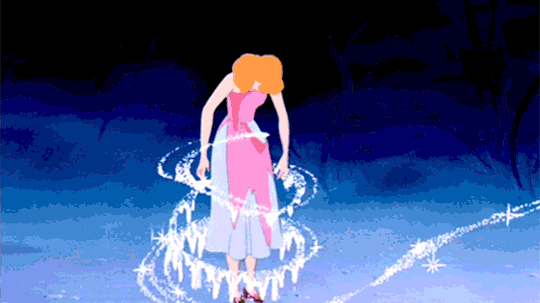
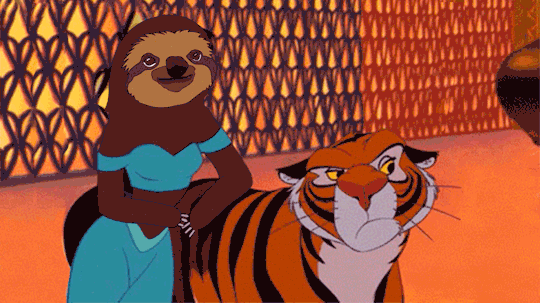

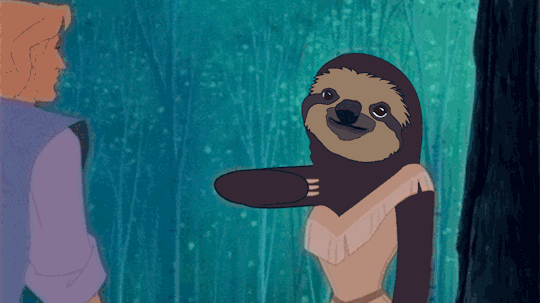
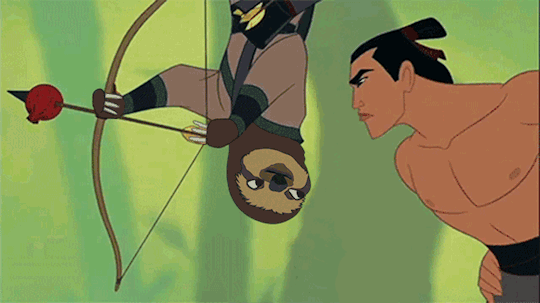
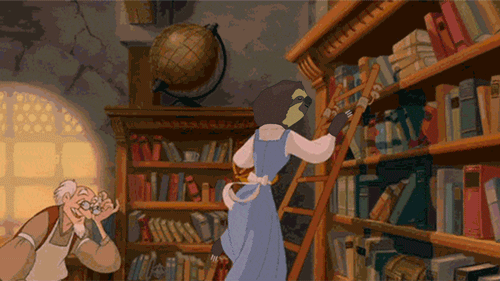
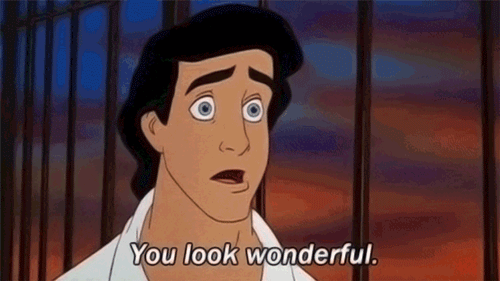
If Disney Princesses Were Actually Sloths by Jen Lewis Previously: Nicolas Cage as Disney Princesses
141K notes
·
View notes
Photo


set up for a french study session a few weeks ago 📖🌱
studygram
1K notes
·
View notes
Text
Hello everyone, this is my first time using tumblr and I feel a little lost, but hope to get the hang of this soon (: hope you guys enjoy the blogs I like and if you have tips on how to remove or add more, please let me know! thank you!
1 note
·
View note




